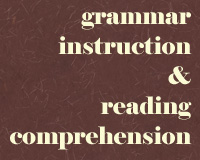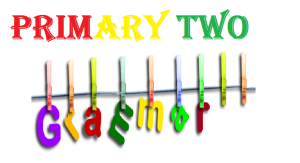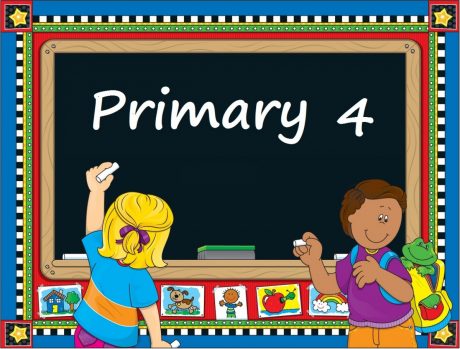37
GRAMMAR AND COMPREHENSION Why do we learn grammar? There is no point in learning grammar for the sake of learning …
GRAMMAR AND COMPREHENSION
Why do we learn grammar? There is no point in learning grammar for the sake of learning grammar. Grammarhttps://ortongillinghamonlinetutor.com/the-importance-of-grammar-in-reading-comprehension/ is the support system of communication and we learn it to communicate better. Grammar explains the why and how of language. We learn it because we just can't do without it. Who is this course for and what does it cover? This course deals entirely with English as a foreign language (EFL). It is for intermediate students who are working with a teacher or working on their own. It covers every important area of the English language. If you look at the unit pages, you will find sixteen major areas which form the basis of English grammar. This course is based on the Longman English Grammar and the grammatical information in it is all drawn from this work. course has been designed to stand on its own. Students who require further grammatical information can refer to the Longman English Grammar.

Course Currilcum
- ENG2:ADJECTIVES Details 5 days
- Adjectives are words that describe or modify other words, making your writing and speaking much more specific, and a whole lot more interesting. Words like small, blue, and sharp are descriptive, and they are all examples of adjectives.
- ENG: Adjectives Assignment 3, 00:00
- ENG2: ADVERBS Details 5 days
- An adverb is a word that modifies (describes) a verb (he sings loudly), an adjective (very tall), another adverb (ended too quickly), or even a whole sentence (Fortunately, I had brought an umbrella). Adverbs often end in -ly, but some (such as fast) look exactly the same as their adjective counterparts.
- ENG2: PRONOUNS Details 5 days
- A pronoun is a word that replaces a noun in a sentence. Pronouns are used to avoid repeating the same nouns over and over again. For example, "Jeremy ran so fast, you'd think his life was on the line." The pronoun "his" saved us from repeating the name Jeremy again. Types of Pronouns
- ENG2: PARTS OF SPEECH Details 5 days
- a category to which a word is assigned in accordance with its syntactic functions. In English the main parts of speech are noun, pronoun, adjective, determiner, verb, adverb, preposition, conjunction, and interjection.
- ENG2: TENSES Details 1 week, 3 days
- Verbs come in three tenses: past, present, and future. The past is used to describe things that have already happened (e.g., earlier in the day, yesterday, last week, three years ago). The present tense is used to describe things that are happening right now, or things that are continuous. The future tense describes things that have yet to happen (e.g., later, tomorrow, next week, next year, three years from now).
- ENG2: PREPOSITINS Details 10:00:00
- A preposition is a word used to link nouns, pronouns, or phrases to other words within a sentence. They act to connect the people, objects, time and locations of a sentence. Prepositions are usually short words, and they are normally placed directly in front of nouns. In some cases, you’ll find prepositions in front of gerund verbs.
- ENG2: PREPOSITINS ASSIGNMENT 450:07
- ENG2: ARTICLES Details 5 days
- English has two articles: the and a/an. The is used to refer to specific or particular nouns; a/an is used to modify non-specific or non-particular nouns. We call the the definite article and a/an the indefinite article. For example, if I say, "Let's read the book," I mean a specific book.
- ENG2: ARTICLES ASSIGNMENT 450:07
- ENG2: CONJUNCTIONS Details 5 days
- In grammar, conjunction (abbreviated conj or cnj) is a part of speech that connects words, phrases, or clauses that are called the conjuncts of the conjunctions.
- ENG2: CONJUNCTIONS ASSIGNEMNT 750:12
- ENG2: COMPARISON Details 05:00:00
- The comparative form is used to compare two people, ideas, or things. The superlative form with the word "the" is used to compare three or more. Comparatives and superlatives are often used in writing to hedge or boost language.
- ENG2: COMPARISON ASSIGNMENT 750:12
- ENG2: THE ACTIVE AND PASSIVE VOICE. Details 05:00:00
- Active voice means that a sentence has a subject that acts upon its verb. Passive voice means that a subject is a recipient of a verb's action
- ENG2: THE ACTIVE AND PASSIVE VOICE. ASSIGNMENT 300:05
- ENG2: FIGURATIVE EXPRESSIONS. Details 05:00:00
- In traditional analysis, words in figurative expressions connote additional layers of meaning, while words in literal expressions denote what they mean according to common or dictionary usage. Such symbolical and metaphorical meanings are called Figuratives. ... They contain the figure of speech.
- ENG2: FIGURATIVE EXPRESSIONS. ASSIGNMENT 75:01
- ENG2: QUESTION AND ANSWER TAGS. Details 05:00:00
- Answering Tag Questions. When you answer a tag questions, often you can just say 'yes' or 'no'. To give the full answer, you use the same auxiliary or modal verb that was used in the question.
- ENG2: QUESTION AND ANSWER TAGS ASSIGNMENT 300:05
- ENG2: RELATIVE CLAUSE. Details 5 days
- A relative clause is one kind of dependent clause. It has a subject and verb, but can't stand alone as a sentence. It is sometimes called an “adjective clause” because it functions like an adjective—it gives more information about a noun.
- ENG2: RELATIVE CLAUSE. ASSIGNMENT 750:12
- ENG2: SOUND AND NOISE. Details 5 days
- Sound and noise are nouns. We can use them both as countable or uncountable nouns. Both refer to something which you can hear, but when a sound is unwanted or unpleasant, we call it a noise:
- ENG2: SOUND AND NOISE ASSIGNMENT 450:07
- EENG2: ADVERBIAL PHRASES. Details 01:30:00
- A phrase is a group of words that does not make a complete sense on its own.
- ENG2: MODELS AND AUXILLIARIES Details 01:30:00
- These are known as helping verbs. They assist the main verb. Examples of auxiliary verbs (a) Be [is, are, was, being, been, were]
- ENG2:VERBS AND TENSES Details 01:30:00
- Verbs are the basic elements in sentences. They are that part of a sentence that indicates the action and the tense
- Eng2: Grammar questions Details 3 days, 18 hours
- This unit is meant to test you understanding of grammar
- ENG2: COMPARISON OF ADJECTIVES. Details 00:00:00
- Eng2: NOUNS Details 01:30:00
- It‘s a word used as the name of a person, place or thing. There are four kinds of nouns. (a) Common (b) Proper (c) Collective (d) Abstract.
- ENG2: PREPOSITIONS Details 01:30:00
- ENG2: PREPOSITIONS assignment 1, 900:15





